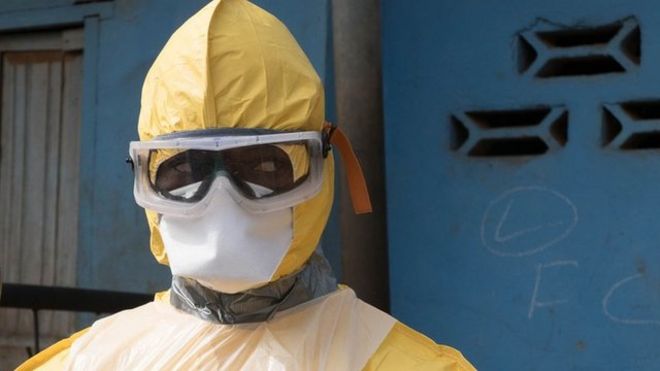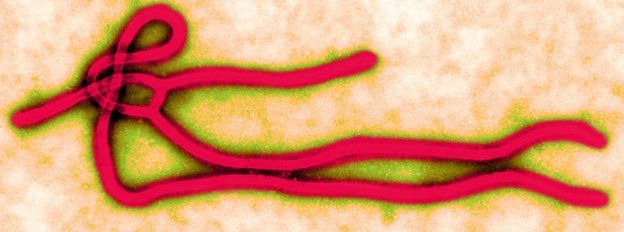
It means the disease is not thought to be a significant public health threat to countries outside of those affected in West Africa.
A small cluster of cases are still occurring in Guinea, but Sierra Leone and Liberia have not had any in months.
But experts say countries must remain vigilant for new flare ups of Ebola.
There have been 12 of these to date – the most recent on 17 March in Guinea. The WHO says countries have been able to react to these clusters quickly to contain them.
And all original chains of Ebola transmission have ended in the three West African countries that were plagued by the disease.
Ebola is spread by close physical contact. The virus is carried in bodily fluids – blood, vomit and saliva – which means people who care for the sick are vulnerable to catching the infection.
It has also been detected in the semen of male survivors, and the WHO says national and international efforts must be intensified to ensure such men can have their semen checked to know if they might still be able to spread the infection.
 Image copyrightSPL
Image copyrightSPLAnd work must continue on the use of Ebola vaccination for intimate and close contacts of those survivors who still carry the virus, says the WHO.
But there should be no restrictions on travel and trade with Guinea, Liberia and Sierra Leone – any such measures should be lifted immediately, it says.

- Worldwide, there have been 28,639 cases of Ebola virus disease and 11,316 deaths at 13 March
- There are over 10,000 Ebola survivors
- More than 800 contacts of recently confirmed Ebola cases in Guinea’s southern prefecture of Nzérékoré have been identified and placed under medical monitoring in a bid to contain a new flare-up.
[Source:- BBC news]




